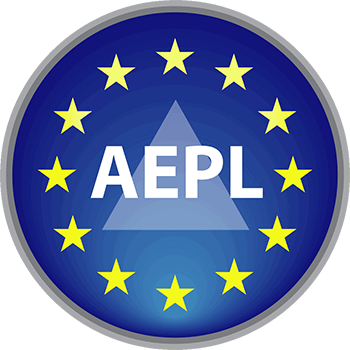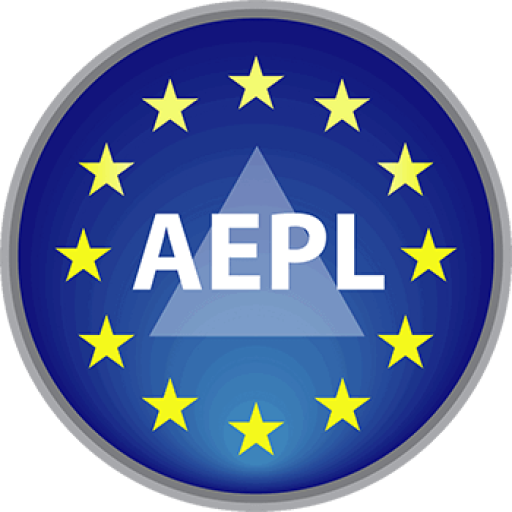A think tank that takes action and achieves results
Something concrete for the future of Europe
EAFT has circulated to the Parliament and the Commission an important summary document setting out our vision of Europe, entitled " A different take on Europe: the need to rebuild Europe " in which ́over 200 of our correspondents took part including from Central and Eastern European countries, in a spirit of participatory democracy leading to concrete proposals. It was the subject of a colloquium on 1 April 2019 organised at the headquarters of the European Commission in Brussels during which AEPL also presented a report on "the digital transition, work, employment and new solidarities"
EAFT has also provided an important contribution to the citizens' consultation on the Future of Europe(2021-2022): nearly a hundred of our correspondents sent us their contributions, which we have compiled into a three-part summary document dealing with Governance and Institutions (federation, legislative initiative by the European Parliament and strengthening of its powers, rule of law, abandoning unanimity voting; promotion and defence of our way of life, including our values, creation of a genuine European social policy and raising certain policies, such as health, to the European level), migration and asylum, and defence and security.
This summary was forwarded to the relevant commissioners : Ms Suica, Mr Schinas, Mr Breton and the President of the EP, Ms Metsola, and posted on the multilingual platform.
L’AEPL a ainsi pu contribuer au rapport final de la conférence sur l’avenir de l’Europe dont les 328 mesures et 49 propositions ont été remises le 9 mai 2022 aux présidents des Institutions européennes. À la lecture du rapport final de la conférence, l’AEPL peut se prévaloir d’avoir influencé un certain nombre d’entre elles.
Gaining respect for secular values
EAFT is a regular partner at meetings under the Lisbon treaty's article 17 dialogue , which guarantees "an open, transparent and regular dialogue with Churches and religious associations or communities, as well as with philosophical and non-confessional organisations". EAFT ensures that institutions treat religious and non-confessional organisations equally,in particular by writing to the Presidents of the Parliament and the Commission.
It also contributed to the guidelines for EU diplomats vis-à-vis third countries by adding the sentence: " the rights of non-believers, agnostics and atheists will be protected by the European Union, as will the fundamental right to change or abandon one's religion or beliefs "
Taking action through direct democracy
Numerous examples of direct democracy by sending emails to European and national politicians: against the display of crucifixes in Italian schools (2011: Lautsi case); campaign against the confirmation by the European Parliament of the Maltese commissioner M. Borg given his unacceptable positions on homosexuality and the right to divorce; for the right to atheism (2013: J. Mejri case in Tunisia); against authoritarian excesses (2013: J. Mejri case in Tunisia); against the authoritarian and anti-democratic excesses of Turkey, Poland and Hungary; request to limit the concessions made to the United Kingdom before the Brexit referendum; etc. Letter to High Representative Mogherini protesting against her project for an "Erasmus of religions", finally abandoned by her successor Josep Borrell, to whom the EU has given its support. Another letter has just been sent concerning the situation of women in Iran.
Another example is the letter sent in June 2021 to Members of the European Parliament calling on them to support the resolution on sexual and reproductive rights ensuring in particular safe and legal access to abortion, EAFT believes that it is important to further promote the right of every individual to exercise total control over matters relating to their sexuality.
Successful referral to the European Ombudsman
Cette action qui a conduit à une plainte auprès de la médiatrice européenne Mme O’Reilly en 2012 contre M. Barroso, le président de l’époque de la Commission européenne, en raison de ses nominations abusivement religieuses de membres du groupe européen d’éthique pour les Sciences et les Technologies. En effet, sur les 15 professeurs universitaires du groupe, il avait nommé sept théologiens, dont une vierge consacrée. Pour compléter le tout, il avait aussi nommé une professeure italienne, Mme Laura Palazzini, sous la rubrique « professeur de philosophie du droit », mais elle était aussi membre de l’Académie Pontificale pour la vie, ce que la Commission avait « omis » de mentionner.
Dans sa plainte, l’Association Européenne de la Pensée Libre a fait valoir que lors du renouvellement du groupe il fallait supprimer le critère de théologie, celui-ci ayant de facto pour résultat de créer dans le groupe une surreprésentation de la communauté religieuse.
Ultimately, the theology criterion was removed by the European Commission when the group was renewed (2015) and lay candidates were invited to apply. A new balance was achieved in 2017
Participation in conferences organised by European institutions
L’AEPL a contribué à l’organisation de colloques à la Commission et au Parlement européens Women in today's Europe (2010); Combating poverty and social exclusion (2011); Re-enchanting a people's Europe (2013); The EU-US Free Trade Agreement (2015); A different take on Europe (2019); Europe - a land of humanism - Combating extremism (2020).

























